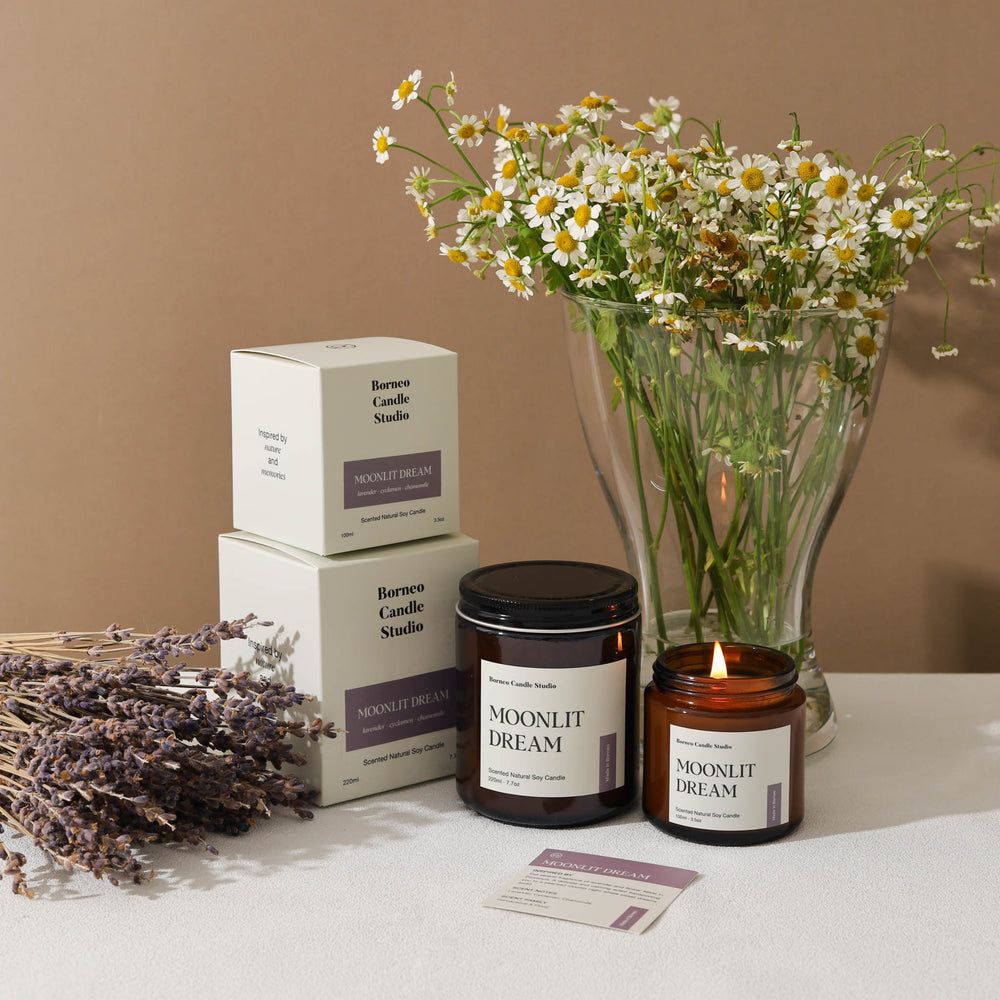There’s something fascinating about scented candles. How it eases your mood, brighten up a space and even takes you to places. At the same time, the flickering light and flame of the candle is so mesmerising that it somehow can just relaxes you just by looking at it.
But have you ever wondered about the history of scented candles and how does it actually work? Let’s find out!
History of scented candles
According to the US National Candle Association, candles (also known as lilin in Malay) are dated as far back as 3000 B.C. with the Egyptians who first used animal fats. Candles then progress through centuries with the use of plants, insects and animal waxes and are primarily used as a source of light. It wasn’t until the mid 19th century where advancements were made in wax and candle production that allowed scented candles to take off.
How does a scented candle work?
For a flame to happen, you’d need the ‘fire triangle’ where you have oxygen, heat and fuel. Take any of the elements away, the fire will die. In scented candles, the fire triangle takes place due to the candle wax, wick and the flame.
When you light the wick of your scented candle, the heat from the flame melts the wax. With fragrance and essential oil molecules in the wax are heated, they give off an aroma. This aroma is released through the evaporation from the hot wax pool (melt pool) hence scented candles usually give off the scent gradually.
With this in mind, it’s also important to make sure your scented candle melts evenly each time to produce a full melt pool to provide the best scent experience. A few key things to remember on each burn is to ensure you are burning the candle on an even surface and away from drafts.
Not all scented candles are made the same!
Paraffin wax is most commonly used in mass-produced candles available in the market. They generally give a stronger scent throw while using lesser fragrance hence are cheaper to produce and are readily accessible.
According to a study in 2009, paraffin candles were found to release potentially carcinogenic toxic chemicals (toulene & benzene) when burned. It also tend to release soot when burned thus staining walls & furniture and affects our respiratory system.
Soy wax candles on the other hand generally burn clean with minimal to no sooting so you and your family can enjoy scents at home without such worries.
There’s no doubt candles have come a long way from being a source of light to a must have in the household of our modern day as a home decor, self care companion, gifts and more. Now go on, enjoy your candle!
Recommended Reading:

